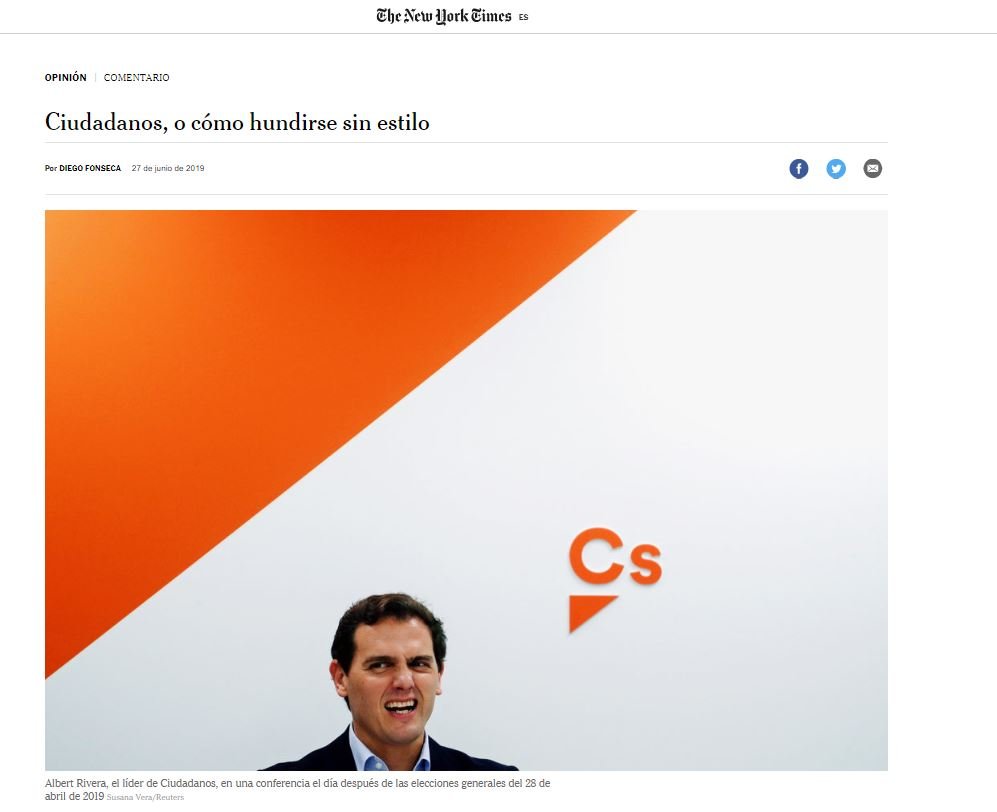In an op-ed piece for The New York Times, journalist Diego Fonseca has posed the question of how Albert Rivera, leader of Spain's Ciudadanos (Cs) party, has been capable of "ruining so quickly" a political career that had previously seemed promising.
The article, published in the Spanish-language edition of the Times, considers that at present the road ahead for Ciudadanos would offer better visibility if Rivera were no longer in the driver's seat. In Fonseca's opinion, the accelerated path that Rivera has traversed in recent years has not helped to run the centrist party which Cs voters "demand". "Rivera should rethink his path," suggests the article, "if what matters now are ideas and not names."
Rivera is, for Fonseca, an heir to the political culture of "shamelessness". In the article, he explains in a tough and forceful tone that the career of the Ciudadanos leader has been the product of abrupt and spontaneous decisions and what the party now needs is a dose of moderation, which would "result from a strategic, formal and ideologically-solid discussion". For this reason, Rivera should "step aside and make room for other figures in the party," he writes.
As well as reviewing the political career of Rivera, the article explains the current Cs crisis, which exploded when a number of heavyweights abandoned the party, unable to position themselves either "on the right, still embracing the PP", or in the space of "Spanish nationalism, married to the Vox extremists", and even less capable of settling where the party had often promised it would, "in the political centre."

The journalist considers Rivera's drift "toward the extreme" as an error which has undermined him, since countries "usually go well when [centrist parties] opt for moderation." As the The New York Times article says, a modern liberal party or intelligent centre-right group is a good systemic counterbalance to the centre-left and left. An option that Rivera has failed to materialize.
"The party that should have occupied the liberal centre of Spain, which had to absorb moderate conservatives and disappointed social democrats from the PSOE," says Fonseca in the article, "now offers an increasingly inedible dish, topped off with unsavoury pacts it has made in order to control power in some cities and towns."
In parliamentary democracies like Spain's, the article says, centrism facilitates the constitution of governments. As an example, the journalist argues that, currently, less traumatic government agreements could be reached with a "rational centre-right" than with the "angry right of the PP and the enraged right of Vox."
The journalist concludes that Rivera "could have taken advantage of the centre" as a pivot point, allowing flexibility and avoiding fractures, and he recalls that the Ciudadanos party was born in 2005 with the idea of representing this centre. "This manoeuvrability is what Spain loses with the crisis of the party," he concluded.

